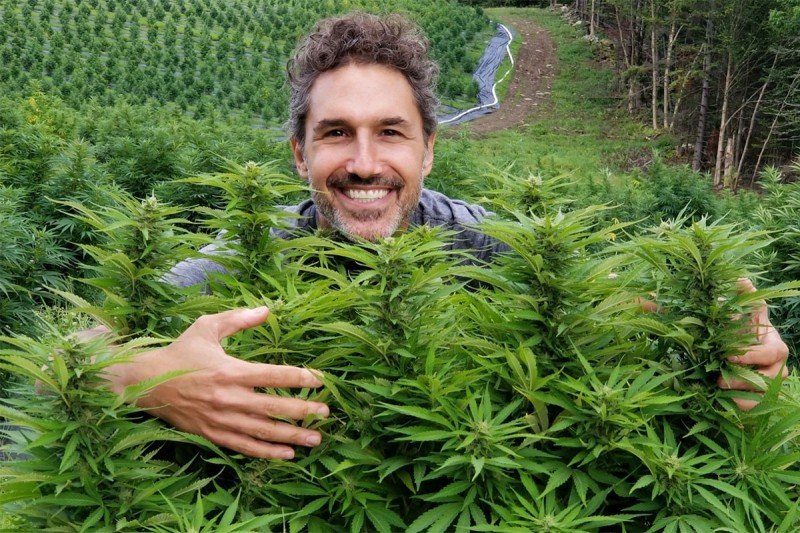
Cannabis is an ancient plant that has been used for rituals and medicine for 5,000 years. People with cancer have turned to cannabis — better known as weed or marijuana — to relieve effects of both the illness and the treatment. Because of its ever-changing legal status, studies have been limited. So what do we really know about its safety and effectiveness?
Diane Reidy-Lagunes, medical oncologist at Memorial Sloan Kettering Cancer Center (MSK) and host of Cancer Straight Talk from MSK, a podcast for people with cancer and their loved ones, sat down with Nirupa Raghunathan, Director of Pediatric Integrated Medicine and Founding Attending for the MSK Medical Cannabis Clinic, and Ethan Zohn, cancer survivor and winner of CBS’ Survivor: Africa, to get some clarity about the role that cannabis may play for people with cancer.
What makes a good pain remedy — chemically, mentally, legally? Is it better as an edible, oil, or vapor? And how does one even begin to figure out dosing? These are the questions Dr. Diane Reidy-Lagunes explores in this discussion with Dr. Nirupa Raghunathan, MSK’s Director of Pediatric Integrated Medicine, and Ethan Zohn, cancer survivor and winner of TV’s Survivor: Africa.
What does marijuana do for cancer symptoms and treatment side effects?
Dr. Raghunathan explains that the cannabis plant contains 108 chemicals, but THC and CBD are more prominent, easier to pull from the plant, and easier to study. THC is the chemical that has a psychoactive component, while CBD does not.

“[THC] has been shown to maybe be helpful with nausea and vomiting, particularly related to chemo,” Dr. Raghunathan says. The synthetic form of THC was developed more than 30 years ago into the FDA-approved pharmaceutical known as dronabinol (Marinol®), used to treat nausea and vomiting. “We also see [THC] being approved for AIDS anorexia, meaning lack of appetite,” she says.
Ethan Zohn used mainly edible forms of cannabis during his treatment for lymphoma. At the time, he was taking separate medications for nausea, anxiety, pain, and sleep, but was able to wean himself off many of them by using cannabis. “I was hungry, I actually was nicer to be around, I could sleep, I had more energy, I had less anxiety,” he says. “I’m not gonna say it’s a cure-all, but it definitely made me feel better.”
As for CBD, there are some studies that show CBD in high doses has helped performance anxiety and may benefit sleep quality. However, it’s so new to the market that “we don’t have this beautiful recipe where you say, ‘Okay, if I put two drops in, this is what I get out,’ ” Dr. Raghunathan says.
Where and how to get weed
Before cannabis was legal in New York, Ethan had no way of knowing if the marijuana he was buying off the streets would be pure and safe. Medical oncologist Miguel-Angel Perales gave him these parameters: Don’t smoke it, make sure it is mold-free, and know where it came from. “The fear of actually trying to get a medicine that I felt was going to help me, on top of actually going through cancer, and doing an illegal activity on top of all of it, was really difficult to manage for me,” Ethan says.
Now that cannabis is legal in New York and several other states, patients can go through a certifying provider, like Dr. Raghunathan. “The provider issues a certificate. The certificate then allows a person access to a dispensary and you meet with a dispensary pharmacist — and they’re the ones who are suggesting the specific product,” she says. There is an important restriction: Patients must only use within the state where they received the product, regardless of whether it was prescribed or not.
CBD products can be found just about anywhere, but Dr. Raghunathan says that the U.S. Food and Drug Administration (FDA) has yet to designate whether CBD is a food, drug, or supplement, which leaves manufacturers open to interpret the regulations however they want. For some assurance, she recommends patients look for products that have been quality-checked by places like ConsumerLab or the U.S. Hemp Authority. She adds: “The CBD-only products out of a dispensary have to meet a certain quality standard laid out by the state. There is some level of regulation that can sometimes ease people’s concerns.”
To learn more about cannabis and cancer, tune in to this episode of Cancer Straight Talk from MSK.




